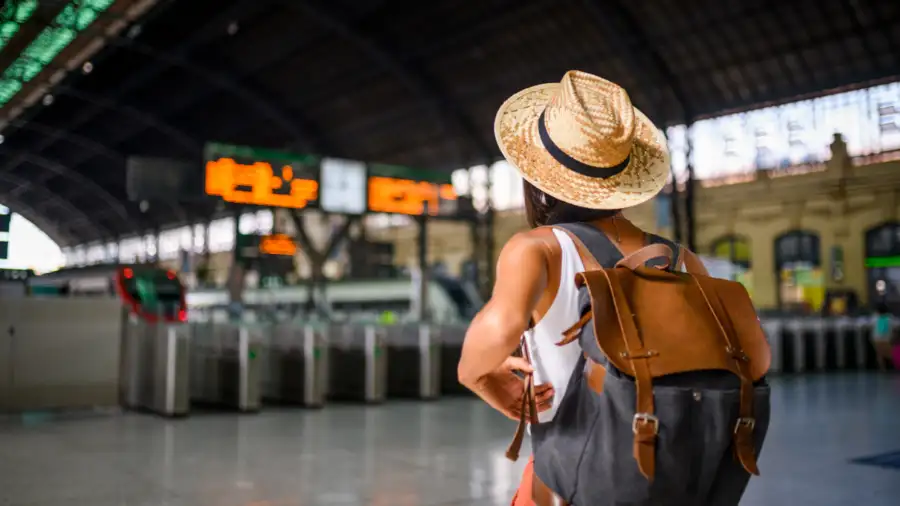Solo Travel Safety Tips That Actually Work (Backed by Real Travelers)

Let’s just start with this: solo travel can be life-changing. Not in the overly dramatic, Instagram-influencer kind of way (although sometimes, yes, it is that kind of beautiful), but more in the quietly empowering, deeply personal way. You learn things—about the world, about yourself. But it also comes with one big, nagging thought in the back of your mind: "Will I be safe?"
It’s not paranoia. It’s reality. And if you're going to throw yourself into the world with no backup crew, you want to do it smartly. So here’s a real-world guide to staying safe as a solo traveler—backed not just by logic, but by people who’ve actually done it. Some tips are practical. Others, more mindset-based. All of them? They actually work.
Table of Contents
- 1. Trust your gut, even if it makes you look silly
- 2. Fake confidence like a local—even if you’re lost
- 3. Keep a decoy wallet
- 4. Choose accommodation like your life depends on it (because sometimes it does)
- 5. Tell someone where you are, even if it feels like overkill
- 6. Avoid arriving in a new city at night, if you can help it
- 7. Yes, you can be friendly. But no, you don’t owe anyone your time
- 8. Blend in, don’t broadcast
- 9. Learn a few key local phrases (or fake them well)
- 10. Don’t trust every fellow traveler, either
- 11. Pre-book your first night—and your transport from the airport
- 12. Download offline maps, emergency apps, and travel insurance docs
- 13. Act more alert than you are (especially when drinking)
- 14. Have an exit plan—always
- 15. Be adaptable—but not reckless
- Final Thought: Solo Travel Is Brave. So Plan Like a Brave Person Would
1. Trust your gut, even if it makes you look silly
Yes, it's a cliché. But travelers swear by it—across borders and time zones.
You know that feeling when something’s just… off? Maybe it’s a pushy stranger. A cab that takes a weird turn. A hostel that feels more sketchy than “rustic.” Listen to that.
Is there a chance you’re overreacting? Sure. But most travelers who’ve gotten out of dicey situations will tell you the same thing: “Something felt wrong, and I walked away.” And later, they were glad they did.
Honestly, better to feel awkward or rude than to wish you'd acted sooner.
2. Fake confidence like a local—even if you’re lost
There’s something unsettling about standing on a street corner with your phone out, spinning in circles trying to figure out which way the blue dot is pointing. That’s when you’re most vulnerable—when you look lost.
A little trick? Before heading out, memorize the first few turns of your walk. Or stop to check directions inside a café, not on the sidewalk. And walk like you know where you're going, even if you're heading in the exact opposite direction.
It’s not about lying to yourself. It’s about not looking like a target.
3. Keep a decoy wallet
Here’s a tip that doesn't get enough attention: carry a fake wallet.
Yes, seriously. Just an old wallet with a few expired cards and maybe a small bill or two. If you ever get pickpocketed or—worst case—robbed, it’s what you hand over.
It won’t stop bad things from happening, but it can soften the blow. Travelers who've been in those situations say the decoy wallet gave them a moment to react, or at least minimized their losses.
Of course, keep your real valuables well-hidden (a money belt or inside a locked bag works). But the decoy? Surprisingly effective.
4. Choose accommodation like your life depends on it (because sometimes it does)
That budget hostel with no reviews but amazing photos? Maybe skip it.
Look, price matters when you're traveling solo. You’re footing the entire bill. But when it comes to where you sleep, this isn’t where you want to gamble.
Real travelers recommend:
Always check recent reviews (and read between the lines)
Prioritize places in safe, well-lit neighborhoods
Opt for female-only dorms if you're a solo woman and unsure
Bonus: Choose places with lockers and 24/7 reception
And don’t be afraid to change plans. One traveler told me they booked three nights at a guesthouse, walked in, got a weird vibe—and booked a different place that same night. No regrets.
5. Tell someone where you are, even if it feels like overkill
You don’t need to check in like you're reporting to base every hour, but leave a digital breadcrumb trail.
At the very least:
Share your itinerary with a friend or family member
Drop a quick “Hey, I’m here” message when you arrive in a new city
Set up location sharing on your phone (even temporarily)
Apps like Life360 or Find My can do this easily. Some travelers also swear by Google Docs—just drop your flight numbers, hotel names, and emergency contacts in there and share it. Easy, low effort, but could be life-saving.
6. Avoid arriving in a new city at night, if you can help it
Arriving at 2 a.m. in an unfamiliar place with no one around, maybe no working SIM card, and no clue where to go? Yeah, not ideal.
Many seasoned solo travelers plan their transit to land during daylight hours, if possible. It’s not always doable—flight times are what they are—but when you can choose, aim for daytime arrivals.
That gives you time to:
Navigate public transport or negotiate a taxi fare more safely
Spot red flags in neighborhoods
Actually enjoy the arrival instead of stressing out
You can always save money somewhere else. Don't cut corners on peace of mind.
7. Yes, you can be friendly. But no, you don’t owe anyone your time
This one’s tricky, especially if you're traveling in cultures that are more social or male-dominated.
Being friendly doesn’t mean being available.
A lot of solo travelers say the hardest part is balancing openness with boundaries. You want to meet people—but you also need to protect your energy, your space, and your instincts.
If someone’s being pushy? Walk away. If you don’t feel like talking? You don’t have to.
One traveler I met in Thailand had a go-to line: “Sorry, I’m on a digital detox today.” Worked like magic.
8. Blend in, don’t broadcast
You don’t need to change who you are, but there’s no harm in being low-key.
That means:
Ditching flashy jewelry or brand-name gear
Wearing clothes that fit in with local norms (Google helps)
Leaving expensive tech out of sight when not in use
It’s not about fear. It’s about reducing attention. One solo traveler put it this way: “If I look like someone who knows the place and has been here a while, people leave me alone. That’s the vibe I go for.”
9. Learn a few key local phrases (or fake them well)
Even if it’s just “hello,” “thank you,” and “no, thank you,” it goes a long way.
Knowing basic phrases can:
Help you get out of awkward or uncomfortable situations
Show respect (which earns you goodwill)
Make you feel more in control, even when you’re not
Bonus: Download Google Translate offline. You’ll thank yourself later. Or, again, someone in a panic-filled hostel hallway at 3 a.m. will.
10. Don’t trust every fellow traveler, either
This sounds a bit harsh, but it’s true: just because someone is also traveling doesn’t make them safe.
Yes, many travelers are amazing. You’ll meet kind, smart, generous people on the road. But—sometimes, not always—scammers pretend to be backpackers. Or fellow guests take advantage of open doors and unlocked lockers.
The key? Stay friendly, but cautious. Keep your essentials with you. And don’t assume shared experience equals trustworthiness.
11. Pre-book your first night—and your transport from the airport
Flying into a new country? Just book night one. And figure out how you’re getting from the airport to your hotel.
You can wing it after that if you like. But that first night? That’s when you’re tired, jet-lagged, and a little disoriented. It’s not the time to haggle with cab drivers or walk through neighborhoods looking for vacancies.
One traveler told me they used to never pre-book. After a night spent sleeping in a 24/7 McDonald’s in Paris because every hostel was full, they changed that policy fast.
12. Download offline maps, emergency apps, and travel insurance docs
You don’t want to be that person frantically refreshing a screen that won’t load because your SIM card doesn’t work.
Here’s what to download before you go:
Google Maps offline areas
Your accommodation addresses and booking confirmations
Any emergency contact numbers, including your embassy
Travel insurance documents (seriously—get travel insurance!)
A few people might go years without needing these. But when you do? You’ll be grateful.
13. Act more alert than you are (especially when drinking)
This is delicate territory. No one wants to say “don’t drink.” But… don’t drink too much.
Solo travelers need to be extra aware, especially in nightlife settings. If you're out, set your own limit—then stick to it. Always watch your drink. Leave with the same people you arrived with, or go solo if you must—but stay clear-headed.
One woman told me she always sipped water between drinks and kept an Uber app open and ready to use. She never had a problem—but she was prepared if something felt off.
14. Have an exit plan—always
This doesn't mean you expect trouble. It just means you’re ready.
Before walking into a club, climbing onto a boat tour, or hiking a mountain—ask yourself, “How would I get out if I had to?” Maybe it’s the nearest bus stop. Maybe it’s a local number to call. Maybe it’s just knowing where you came from.
Think of it like mental GPS. You don’t have to use it. But it’s comforting knowing it's there.
15. Be adaptable—but not reckless
Some travelers go with the flow. Others plan every detail. As a solo traveler, the magic is somewhere in the middle.
Be open to spontaneity. Yes. But know when it crosses into risk. A local invites you to their cousin’s wedding? Maybe. A stranger offers you a ride to a “better” beach no one knows about? Probably not.
One traveler said her motto was: “If I can Google it later and regret missing it, fine. If I can’t Google it later because something goes wrong, that’s not worth it.”
Final Thought: Solo Travel Is Brave. So Plan Like a Brave Person Would
You don’t need to live in fear. That’s not the point here.
The goal is to stay safe enough that you can enjoy everything else solo travel offers—the freedom, the growth, the stories you’ll tell later.
And sure, maybe not every tip on this list will feel necessary to you. That’s fine. But the beauty of solo travel is that you get to choose. So choose wisely, and often. And maybe over-prepare a little.
Because the world is out there waiting. And it’s better when you can experience it on your own terms—and make it home to tell the tale.


